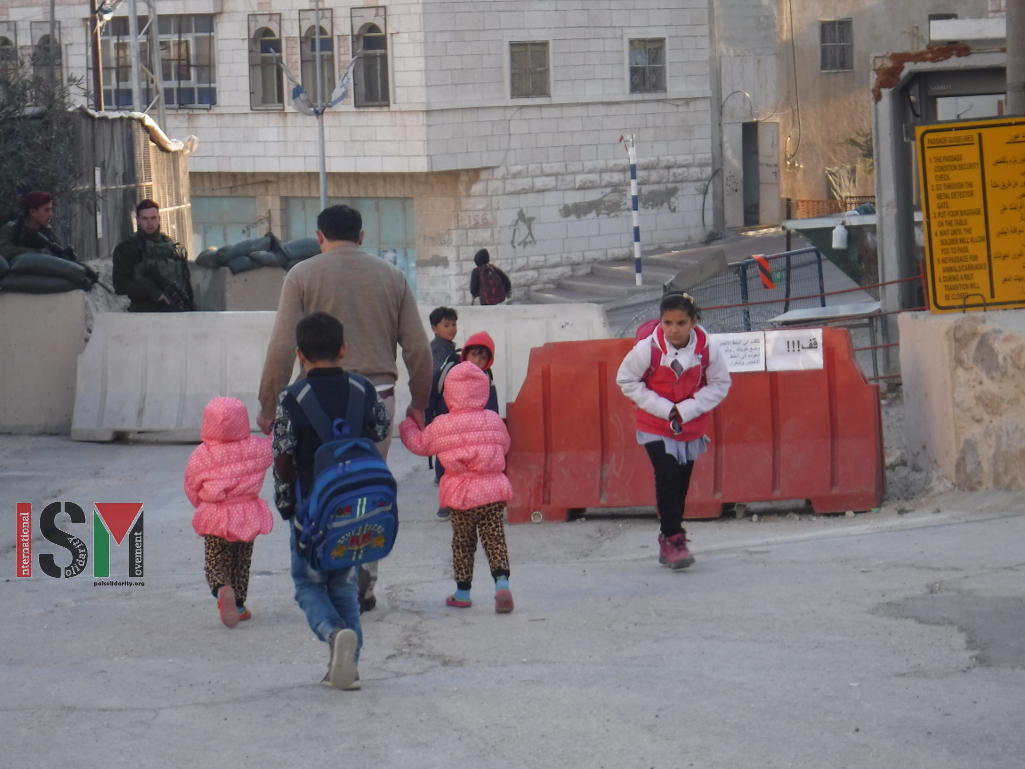Category: Features
-
Children: marvelous examples that life must go on whatever happens
29th November 2016 | International Solidarity Movement, al-Khalil team | Hebron, occupied Palestine Children: marvelous examples that life must go on whatever happens, even if their growing up is influenced by negative experiences with settlers, soldiers, torture, humiliations… We experienced this in the two days of the Jewish festival of “Chaye Sara” in occupied al-Khalil…
-
There is Only One Struggle
28th November 2016 | International Solidarity Movement, al-Khalil team | occupied Palestine and Standing Rock Sometime after 9-11 U.S. police departments (State, local, & Sheriff’s Departments) along with many U.S. governmental law enforcement agencies such as Homeland Security, the FBI, and Border & Customs Police began to send their officers to Israel for training with…
-
Not business as usual: colonial settlers in al-Khalil for Jewish festival
27th November 2016 | International Solidarity Movement, al-Khalil team | Hebron, occupied Palestine The Jewish holiday/celebration of Chayei Sarah and the reading of the Torah regarding Sarah took place in occupied al-Khalil (Hebron) on 25th and 26th November 2016. Beginning of Friday hundreds of Jews from illegal colonial settlements within the West Bank as well…



